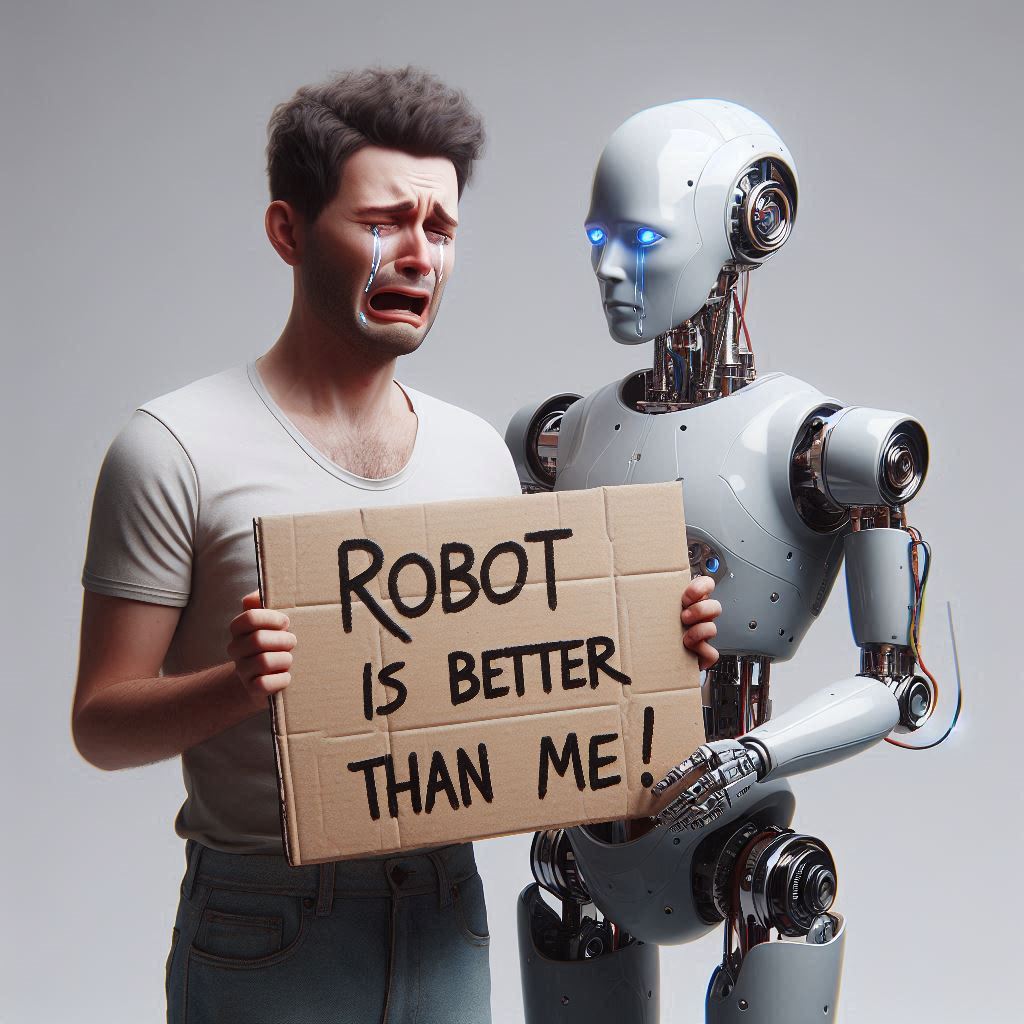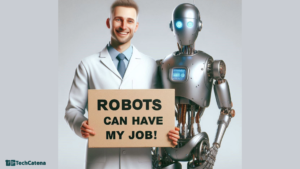Artificial intelligence (AI) has made significant strides in recent years, leading to widespread speculation and concern about its impact on the job market. As AI technology continues to evolve, the question on everyone’s mind is: Will AI replace human jobs? At TechCatena, we’ve delved into the issue to provide a comprehensive analysis.
The Evolution of AI
AI has progressed from performing simple tasks to executing complex processes that require a high degree of cognitive function. Early AI applications were limited to specific, rule-based tasks. However, machine learning and neural network advancements have enabled AI to learn and adapt, expanding its capabilities exponentially.
Companies like Google, Amazon, and Microsoft are at the forefront of AI innovation. Google’s AI research lab, DeepMind, has developed systems like AlphaGo, which defeated the world champion in the game of Go—a task once thought to be impossible for machines due to the game’s complexity. Similarly, Amazon’s AI-driven recommendation algorithms have revolutionized e-commerce by personalizing user experiences.
Job Displacement Concerns
A major concern surrounding AI is the potential for job displacement. According to a 2019 report by the McKinsey Global Institute, up to 375 million workers worldwide may need to switch occupational categories by 2030 due to automation. Jobs in sectors such as manufacturing, transportation, and customer service are particularly vulnerable to AI-driven automation.
For instance, self-driving trucks, powered by companies like Tesla and Waymo, could significantly reduce the need for human drivers. In customer service, AI chatbots and virtual assistants, like those developed by IBM Watson, are increasingly handling tasks traditionally performed by human agents.

The Case for Augmentation
Despite fears of job loss, many experts argue that AI will augment rather than replace human workers. This perspective suggests that AI can handle repetitive and mundane tasks, allowing humans to focus on more complex, creative, and strategic work.
Erik Brynjolfsson and Andrew McAfee, authors of “The Second Machine Age,” advocate for this viewpoint. They suggest that the future of work lies in a symbiotic relationship between humans and machines, where AI acts as a tool that enhances human capabilities rather than a replacement.
Real-World Examples
In many industries, AI is already being used to augment human work. In healthcare, AI systems are assisting doctors by analyzing medical images and predicting patient outcomes. IBM Watson Health, for instance, helps oncologists identify the most effective cancer treatments based on a vast database of medical research.
In the finance sector, AI-driven algorithms are aiding analysts by processing large volumes of data to detect market trends and anomalies. Investment firms like BlackRock use AI to enhance their portfolio management strategies, enabling human analysts to make more informed decisions.
Reskilling and Adaptation
To mitigate the impact of AI on the job market, there is a growing emphasis on reskilling and upskilling the workforce. Governments, educational institutions, and private companies are investing in training programs to equip workers with the skills needed in an AI-driven economy.
For example, Amazon has pledged $700 million to retrain 100,000 employees by 2025 through its Upskilling 2025 initiative. The program focuses on areas such as cloud computing, machine learning, and software engineering, ensuring that workers are prepared for new roles created by technological advancements.
The Future of Work
The future of work in an AI-driven world is not a zero-sum game. While some jobs may become obsolete, new opportunities will emerge. The World Economic Forum’s Future of Jobs Report 2020 predicts that by 2025, 85 million jobs may be displaced by a shift in the division of labor between humans and machines. However, the report also forecasts the creation of 97 million new roles that are more adapted to this new technological era.
Conclusion
The debate over whether AI will replace human jobs is complex and multifaceted. While AI is poised to disrupt many industries, it also presents opportunities for growth and innovation. The key lies in embracing AI as a tool for augmentation rather than a threat to employment. By focusing on reskilling and adapting to the changing job landscape, we can ensure that AI serves as a catalyst for progress rather than a source of displacement.
At TechCatena, we believe that the future of work will be defined by the harmonious integration of human intelligence and artificial intelligence, paving the way for a more efficient and innovative world.


